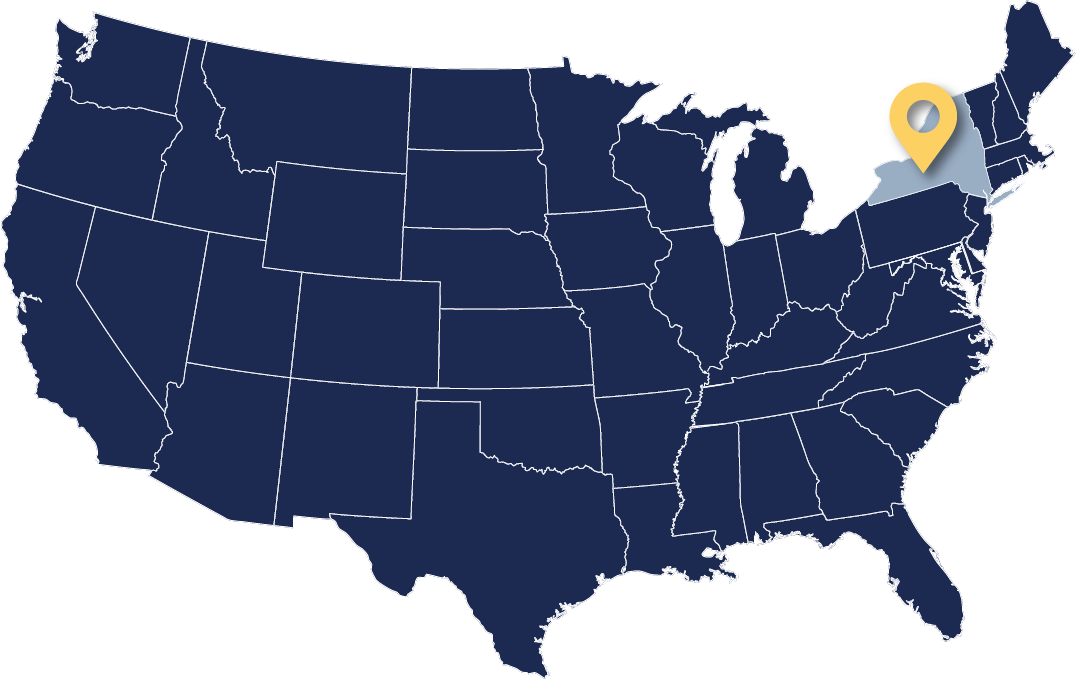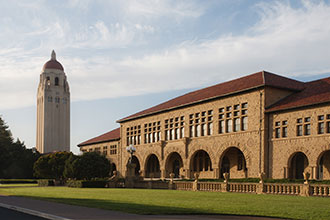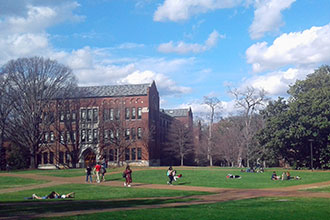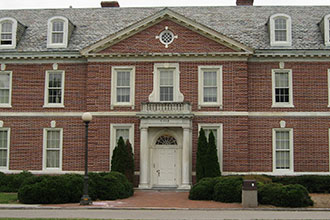CORNELL UNIVERSITY
REQUIREMENTS AND CAMPUS GUIDE
School Name: Cornell University
School Location: Ithaca, NY
School Type: Liberal Arts/Ivy League
Category: High Reach
Cornell University Admissions Rates for Class of 2025
Applications: 67,380
Admitted: 8.69%

General Info
SAT/ACT Score
Test Optional for 2021-2022
Admission Cycle
Fall 2021 Test Scores
Math: 750-800
ERW: 700-760
ACT: 33-35
Dates/Deadlines
Early Decision: November 1
Early Results: Mid-December
Regular Deadline: January 2
Regular Results: Early April
School Information
Schedule: 4-1-4
9:1 Faculty Ratio
Curriculum Type: Distributional*
Greek Life:Yes
Athletics: DI
*disclaimer: can be more specialized depending on undergraduate college/program/major
CORNELL TIPS & GUIDE
Cornell Application Requirements, Admissions Tips, and University Guide
Cornell University is an Ivy League university in Ithaca, New York. Founded in 1865, it is one of only ten private Land Grant universities in the U.S.. Cornell has the largest undergraduate population of any Ivy League university with over 15,000 students. Here’s everything you need to know about Cornell!
Where is Cornell?
Cornell’s main campus is located in Ithaca, New York. Ithaca is a classic college town in New York’s Finger Lakes region. Ithaca boasts a lively farmers market and nationally-ranked restaurants as well as a nearby lake and forest trails. If you’re more of a city person, attending Cornell doesn’t mean you’ll be trapped in a woodsy, quiet town for four years; the bustling city of Syracuse is just an hour’s drive away.
The school sits on top of a large hill called Libe slope. Sitting on the top of the slope gives you a breath-taking view of Cayuga Lake, the gorges, and the Commons, a local town down the slope. The campus itself is fairly large, and it takes approximately 20-30 minutes to walk through its entirety. Walking through campus, you’ll notice historical landmarks, including Bailey Hall and Andrew Dickson Whitehouse. Taking courses in the infamous gothic-style buildings or studying for a final at the “Harry Potter” library can make you feel like you’re in a movie set.
Cornell also has satellite campuses all around the world— medical schools in Manhattan and Qatar and an agricultural technology school in Geneva, NY. Through the Cornell in Rome program, students can spend a semester or an entire year studying architecture, visual arts, art history, urban studies, and Italian all while going on field trips throughout Italy. Cornell also offers programs and internships in New York City and Washington DC.
What is Cornell’s student body like?
During the 2021-2022 academic year, Cornell University admitted 5,852 students to the Class of 2026. Cornell received 17,000 more applications than the previous cycle: an increase from 51,500 to 67,000+.
In terms of racial diversity, 32.7% of the class of 2026 self-identify as underrepresented minorities, 57.7% identify as students of color, 19.9% of the class are first generation, and 55% are women.
How do I apply?
Before you apply, you should consider the current admissions climate at Cornell. For the class of 2025, the early decision acceptance rate was 21% and regular decision acceptance rate was 6.7%. For the class of 2026, the regular decision acceptance rate was approximately 8.7%.
Keep in mind that early decision is a binding application, meaning that if you get accepted early to Cornell, you must withdraw your applications to all other colleges.
The average test scores for the class of 2026 were as follows: the 75th percentile SAT Math score was 800, ERW 760 for English Reading and Writing, and 33-35 on the ACT. 84.2% of students were in the top tenth of their high school graduating class.
Applying to Cornell requires submission of the following:
- Common Application
- Your school report and transcripts
Standardized Testing – Requirement Suspended*- *Cornell has implemented a suspension of standardized testing requirements for 2022, 2023, and 2024 applicants. The College of Agriculture and Life Sciences, the College of Architecture, Art, and Planning, the Dyson School of AEM, and the School of Hotel Administration have adopted score-free policies, meaning that they will not look at your SAT/ACT scores at all (frequently called “test blind”). The College of Arts & Sciences, the College of Engineering, the College of Human Ecology, and the School of Industrial and Labor Relations have adopted test-optional policies.
- Two letters of recommendation
- Counselor Recommendation
- A midyear report
- TOEFL or IELTS (for international students only)
- Cornell Questions and Writing Supplement
- Some colleges and schools require separate interviews, portfolios, and design submissions
- Interviews for Architecture within College of Architecture, Art, and Planning
- Portfolios for Architecture and Art within College of Architecture, Art, and Planning, Fashion Design within College of Human Ecology, and Landscape architecture within College of Agriculture and Life Sciences are required
- Design submissions are required for the Design and Environmental Analysis and Fashion Design and Management majors within College of Human Ecology
- $80 application fee
Interviews are required for students applying to the architecture program and optional for applicants to The School of Hotel Administration. All other applicants do not have the option to interview, although some programs do encourage them. Subject tests are not required by any of Cornell’s undergraduate colleges. The College of Architecture, Art, and Planning requires portfolios that showcase a student’s artistic abilities, but all other colleges discourage the submission of art supplements. Make sure to check whether the school or program you are applying to requires the submission of additional materials!
What can I study at Cornell?
With eight undergraduate colleges, Cornell stays true to its founding principle, “Any Person, Any Study”. Cornell University is made up of the following schools and colleges:
- College of Agriculture and Life Sciences
- College of Architecture, Art and Planning
- College of Arts and Sciences
- Cornell SC Johnson College of Business
- College of Engineering
- Cornell Bowers College of Computing and Information Science
- College of Human Ecology
- School of Industrial and Labor Relations (ILR)
- Cornell Jeb E. Brooks School of Public Policy
Cornell students can choose from 80 majors and 122 minors, as well as intellectually rigorous dual-degree programs, an independent major, and an interdisciplinary major. Dual-degree programs, also called Concurrent Degrees, usually take 5 years to complete. Students can complete minors offered by other colleges or departments, meaning that students committed to engineering can still pursue their interests in agriculture, art, business, or literature at one of Cornell’s other undergraduate colleges.
Having over 4,000 courses to choose from can be intimidating—but don’t worry, your faculty advisor and a major advisor will help you choose the right combination of intellectually stimulating classes relevant to your interests. Introduction courses are usually large lectures, and students participate in weekly discussions with professors or TAs to take a deeper dive into class material. Class sizes decrease as courses cover higher level material—73% of classes have fewer than 30 students.
What should I expect as an incoming freshman at Cornell?
As Cornellians, all students are required to take two first-year writing seminars, a swim test, and two semesters of physical education. Other requirements vary by school, but Cornell does emphasize an interdisciplinary approach to study, so expect to learn from fields of study outside of your major. First-Year Writing seminars are a great addition to the curriculum and can allow you the opportunity to explore a fun topic you’ve always wanted to learn more about, such as the relationship between food and the media or the romantic consciousness of German fairy tales, and practice writing at the collegiate level. .
What is Cornell famous for?
The most popular majors at Cornell include Engineering, Business, Management, Marketing, Computer and Information Sciences, Agriculture, and Architecture. Ranked the 9th best business school by Forbes in 2019, the SC Johnson School of Business houses three business schools specializing in different aspects of corporate expertise. These schools are famous for their successful alumni (10 current Fortune 500 CEOs, 35 billionaire alumni), a global network, and opportunities for outsourcing student talent. For example, Hotel Administration students (“Hotelies”) are required to intern a certain number of hours at Cornell’s Statler Hotel. Students gain valuable hands-on experience by working alongside world-renowned chefs and full-time staff, as well as interacting with real guests.
Cornell also encourages student businesses and start-ups: in 2020 (during the pandemic!), a group of 9 Hotelies opened a 100% student-run restaurant called 2 Stay 2 Go in Collegetown. Its locally-sourced menu changes on a weekly basis. The restaurant has been loved by students since its grand opening.
Famous courses at Cornell include Introduction to Wines, where you can learn about the wine fermentation processes and sample selections of exquisite wine. In Human Bonding, you can learn all about why people fall in love. Or if you’ve always wondered whether you could eat a mushroom found on a walk around your neighborhood, you can check out Magical Mushroom, Mischievous Molds, offered by the Plant Pathology department.
Can I participate in research as an undergraduate at Cornell?
Of course! In fact, Cornell actively encourages student engagement in research. This can include working alongside professors, participating in summer programs or conducting independent projects. 27% of undergraduates, or more than 4,000 students, earned credit for research during the 2019-2020 academic year; a senior majoring in a science can expect to devote about 15 to 25 hours to a faculty-led research project per week. As a research institution, Cornell is home to distinguished professors at the forefront of their fields. Some examples of their research include French air traffic control uses, breakthroughs in machine learning, and the discovery of a fungus that saved thousands of lives. Opportunities to work with scholars at Cornell are readily accessible, as professors are constantly seeking research assistants. In addition, more programs are available through Cornell-run research programs, such as Weill Medical opportunities in NYC or the Food Science Summer Scholars Program.
What is living on Cornell’s campus like?
Many top schools require their first-year students to live on campus in order to foster a sense of community early on. At Cornell, freshmen find their homes on North Campus, which has recently been expanded to house a larger body of students. The first-year residences are also home to Faculty Fellows and residential advisors who help students adjust to life at Cornell. First-year students can live in one of 9 residence halls or 9 themed program houses.
Beginning in the Fall of 2022, sophomore students are required to live on campus. Students may choose to remain on North Campus, move to West Campus, live in a co-op or program house, or in their fraternity or sorority house. After completing their second year, students have the choice to stay on campus in one of the dorms, co-ops and program houses, or Greek life houses, or move off campus. Many find themselves moving into Collegetown apartments, where they have access to authentic restaurants, grocery stores, and other small businesses.
If you do live on campus, you won’t find yourself having to leave campus too often. The Cornell “bubble” refers to the campus that is encompassed by a safe, understanding community of students, faculty, and the Cornell University Police Department (CUPD). Although the local town is very close and accessible, the campus is a safe space with its own community network and fundamental services.
Should I stash up on my instant mac and cheese?
A big part of feeling at home is having the comforts of home—namely, good food. Whether you’re vegan, kosher, gluten-free, or simply an omnivore, you’ll find foods you love in one of Cornell’s 29 dining facilities. Cornell Dining has been ranked #4 in Business Insider Top 20 college dining halls list and is consistently ranked in Princeton Review’s top 10 best campus food list. Cornell strives to create a cozy, comfortable environment in each of the dining rooms, cafes, and food courts across campus. 10 of the dining halls located throughout campus are buffet-style. Students have the option to use meal swipes at the different campus dining halls, or use Big Red Bucks (BRBs), a declining debit account, at campus eateries. BRBs can be used to buy meals for yourself at any of the dining rooms, snacks or meals or drinks at any of the retail cafes, snacks or drinks from vending machines that take BRBs, or food or drinks at convenience stores! Make sure to check out RPPC Sunday brunch, which includes both a pancake and a dim sum station. If you’re willing to try something new, a quick walk down the slope to the Commons leads to a wonderful hub of restaurants that offer various global cuisines. Some local favorites include Viva la Cantina, Bickering Twins, and the Moosewood Restaurant.
Enveloped in a beautiful farmland region, Ithaca is home to numerous orchards and local cideries. Every fall, the Commons hosts an Apple Fest at which apple cider donuts are must-tries. Cornell also operates its own line of dairy products, called the Cornell Dairy Bar. The ice cream flavors are phenomenal, and participating in student research might earn you some free pints (also available in all dining halls and the Cornell Store).
How much does Cornell cost?
Some of Cornell’s colleges receive funding from New York state in order to ensure the continued economic and social well-being of New York. That means that certain schools at Cornell are cheaper for New York residents. The total estimated cost of attending Cornell for the 2022-2023 school year is $83,296 for the endowed colleges and $62,798 for NY residents attending contract colleges. Both of the prices listed above include tuition, room and board, a health fee, and other expected miscellaneous fees and school-related purchases like books.
Cornell offers need-based aid, rather than merit-based aid or athletic scholarships. In the class of 2025, 83.% of full-time first year students who applied for aid received need based financial aid. The average Cornell grant award for a first-year student in the Class of 2025 was $43,250, and as high as $72,800. The overall price is also reduced through loans and work-study.
What does Cornell look for in applicants?
Staying true to its founding principle “Any Person, Any Study,” Cornell seeks open-minded and empathetic students ready to make an impact on the world. More specifically, students should demonstrate the ways in which they have made full use of their intellectual potential to challenge themselves. Cornell also seeks students who want to take advantage of the interdisciplinary nature of their different undergraduate colleges and schools. Active involvement in the community or the workplace and demonstrated leadership are key factors as well.
Cornell also takes their “Why Cornell?” question very seriously—so get familiar with the reasons why you want to become a Cornellian. Whether you’ve decided on a major or not, write about how you want to take advantage of the resources offered at Cornell.
What is Cornell’s culture Like?
Cornell University, or “The Big Red,” is home to long-standing traditions actively honored by students. One of the most exciting traditions is Slope Day. This concert is held annually at the end of the spring semester. The school invites global artists to perform and provides students free food, drinks, and fun games to play. On Dragon Day, 1st-year architecture students paint their faces and build a large dragon that is proudly carried through campus. If you visit campus, make sure to go up to the Clock Tower to hear the live music played by the Chimes Master. Lastly, ice hockey games are a fan favorite. Students have a tradition of throwing fish onto the ice rink during games played against Harvard.
What extracurricular activities are offered at Cornell?
Cornell has over 1,000 student organizations that range from kayaking to operating hedge funds. Every semester the school holds a campus-wide ClubFest that lets students get a sense of the wide range of available activities.
If you’re looking for a close-knit community, a large network of fraternity and sorority systems cater to different interests and identities. The school was home to the first undergraduate African American fraternity in the nation and the first Asian fraternity in the Ivy League. Also surrounded by a lively local community, volunteer work is readily available just one slope away or on campus.
Activism and political awareness is highly valued at Cornell. The Cornell Daily Sun is one of the most well-known organizations on campus, where students are free to express their opinions about current events. If you’re looking for something more academic, the Cornell Economics Society, the Global Medical Missions Alliance, or coding case competitions might sound intriguing. Other community organizations emphasize diversity and special interests, including the Diversity and Inclusion Business Advisory Council, the Big Red Marching Band, The Hangovers (an acapella group), and the Society of Women Engineers.
View Sources
- https://www.cornell.edu/
- https://nces.ed.gov/globallocator/
- https://admissions.cornell.edu/
- https://admissions.cornell.edu/apply/first-year-applicants/college-and-school-admissions-requirements
- http://irp.dpb.cornell.edu/wp-content/uploads/2022/05/CDS_2021-2022_V5.pdf
- http://irp.dpb.cornell.edu/wp-content/uploads/2021/10/Profile2021-first-year.pdf
Cornell Admission Rates
| | Data Source | Admission Rate |
|---|---|---|
| Class of 2025 | CDS 2021-2022 | 8.69% |
| Class of 2024 | CDS 2020-2021 | 10.71% |
| Class of 2023 | CDS 2019-2020 | 10.85% |
| Class of 2022 | CDS 2018-2019 | 10.6% |
| Class of 2021 | CDS 2017-2018 | 12.67% |
MORE SCHOOLS TO CONSIDER

Standford University
Palo Alto, CA

Vanderbilt University
Nashville, TN

Duke University
Durham, NC
View All Schools ↓
| American Univ Amherst Brown Boston Univ CalTech Carnegie Melon Claremont McKenna Columbia Cornell Dartmouth Duke Emory Georgetown Georgia Tech Harvard Hopkins |
MIT NYU Northeastern Northwestern Notre Dame Princeton Rice Stanford Tufts Tulane UChicago UC Berkeley UC Davis UCLA |
UCSB UCSD UIUC UMich UNC UPenn Univ of Southern California UT Austin UVA Vanderbilt Villanova WashU Williams Wisconsin Yale |
*Updated 2022
